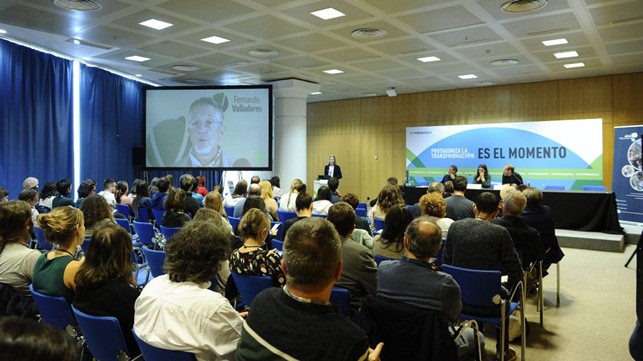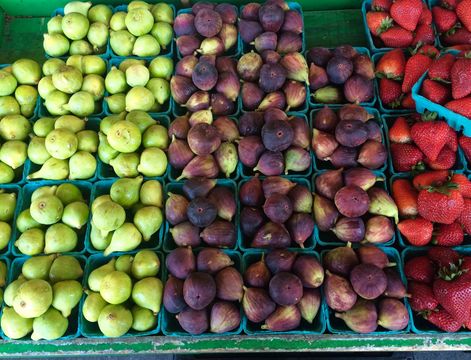
Improved policy for smart circular procurement
CircPro in Bulgaria: Fast progress to meet EU resource-efficiency targets and ensure sustainable use of materials
CircPro (Smart Circular Procurement) aims at promoting the transition to a more circular economy related national and regional decision-making by increasing the implementation of the circular procurement.
Ellen MacArthur Foundation has defined circular economy as a system that aims to redefine growth by focusing on positive society-wide benefits instead of the current take-make-dispose extractive industrial model. This means transition to renewable energy sources and gradually decoupling economic activity from the consumption of finite resources, and designing waste out of the system.
According to the European Commission, circular procurement as a specific approach to green public procurement pays special attention to "the purchase of works, goods or services that seek to contribute to the closed energy and material loops within supply chains, whilst minimizing, and in the best case avoiding, negative environmental impacts and waste creation across the whole life-cycle". This more holistic approach is expected to create conditions that would stimulate energy and material savings, spread innovative solutions and create markets for clean solutions and hence lead to a circular economy.
CircPro’s main objective is to increase the implementation of circular procurement under the targeted policy instruments so that the circular economy principles and criteria are incorporated into them or taken into account as a horizontal principle. CircPro targets the circular procurement from different approaches that have different complexity: all of which facilitate closed loops, but where the focus shifts from better quality products to new and innovative products and new business concepts.
€2,050,524.00
Environment and resource efficiency
Contributing to the selected policy instruments by incorporating the circular economy principles and criteria on the strategic level, the ultimate goal after the project is to get circular procurement as an established practice of the procurement procedures within the partnership regions’ municipalities and towns.
CircPro partnership consisting of 11 partners from 10 regions has identified main barriers that hinder the systematic implementation of the circular procurement in their regions. These are general lack of knowledge and expertise related to circular procurement, procedural and legal barriers, and procurers´ preconceptions about using, as well as lack of, recycled materials.
With inter-regional cooperation, we aim to tackle these challenges by:
Project covers two phases: Phase 1 from June 2018 to May 2021 and Phase 2 from June 2021 to May 2023. Phase 1 is devoted to inter-regional learning process – identifying, analyzing and exchanging knowledge and practices on circular procurement. Phase 2 is dedicated to implementing the Action Plans and evaluating their impact.
Kymenlaakso’s RIS3 strategy will create, via its chosen key strategy points, the framework for the direction of the province’s development effort, as well as the implementation and objectives of project activity. Kymenlaakso’s RIS3 strategy’s key strategy points are:
1. Security and smart logistics (logistics)
2. Energy, new products and entrepreneurial activity from resource-effective and low-carbon bio- and circular economy (bioeconomics; incl. circular economy)
3. a) Cyber-security and gamification as well as b) Digital applications in logistics, bioeconomics (incl. circular economy) and tourism as well as in health and well -being (digitalisation).
The RIS3 is a key element strategy when choosing the next target areas for regional development before and after 2020. Although circular procurement (later: CP) has a significant role in promoting circular economy by enabling development of new circular products and services and circular entrepreneurship, it isn’t included in the Kymenlaakso’s RIS3 strategy. Public procurement plays a greater role in the creation of innovations than the financial support for research and development projects. So the inclusion of CP in the strategy promotes the achievement of the strategy's objectives more effectively. CP is also one of the focus areas of the European Commission’s Circular Economy Package and of Finnish road map to a circular economy. Therefore it is important that circular procurement is included in regional strategies.
Horizontal principle: Efficient Use of Resources.
Andalusia is an autonomous community of Spain, a highly decentralized state. The ERDF Regional Operational Programme Andalusia (OP) has as a main objective the more efficient use of resources.
The more efficient use of resources responds to specific challenges of the “Employment Agenda of Andalusia Region” and moves to all the thematic objectives of the ERDF OP. Also, this horizontal principle is in the specific T.O. 6 “Preserving and protecting the environment and promoting resource efficiency”, with the 14 % of the financial budget of the Andalusia ERDF OP. The regional investment priority sectors are:
- 6a – Waste sector
- 6b – Water sector
Reasons to be improved:
The circular procurement (CP) is an essential element in the regional policy. The existing main barriers are the procedural and legal barriers, a general lack of knowledge and expertise, and consumer’s perception.
Specifically, the Andalusia Regional Government has identified the following areas for improving ERDF OP:
- Specific provisions on how to stimulate proposals and project in the field of resource efficiency and eco-innovation.
- Provisions for monitoring projects on green and environmentally friendly Key Performance Indicators, that are not adequately developed yet.
- Although green public procurement procedures are regular in certain services, there are limited in waste and water management.
The ROP is built around some pillars that include Green Economy & Sustainability with close links into 3 of the Priority Axes (PAs) of the OP, relevant to CircPro:
PA1 (R&I): The support of R&I infrastructure and closer links between research and industry (IP1a) is planned aimed at the development of innovative products and services (IP1b) taking into consideration social innovation and ecoinnovation as transversal strands.
PA3 (Competitiveness of SMEs): Competitiveness of SMEs in the agricultural, fishing and aquaculture sectors thanks to the development of new business models
including green economy and more efficient concepts are planned (IP3b). Investments in greening the SMEs processes are also planned (IP3c).
PA4 (Low Carbon Economy): Promotion of renewable energies and energy efficiency (IP4b) within companies is supported, to which end, Circular Economy
processes can contribute to.
The measures to be supported falling under the Green Economy & Sustainable fields, fail to mainstream systemic approaches for a Circular Economy.
The application of the concept of environmental sustainability is limited to the increase of resource efficiency, use of renewable resources, reduction of waste
production and preservation of environmental heritage.
MA of the OP is aware of this limitation, reason why it is engaged in the proposal.
Circular economy is considered in the national and regional policy instruments namely in the number 1 b) of article 40 of the specific regulation for competitiveness and internationalization and where is stated that must be developed projects that incorporate the principles of eco-efficiency and circular economy in order to promote more efficient use of resources, encourage the reduction and reuse of waste and minimizing the extraction and use of raw materials.
The policy instrument to be targeted is under the thematic objective 3 "RESEARCH, TECHNOLOGICAL DEVELOPMENT AND INNOVATION" and the investment priority "Promoting business investment in R & D, developing synergies between enterprises, research and development centres and higher education sector in the promotion of products and services, technology transfer, social innovation, eco-innovation, demand stimulation in networks, clusters and in open innovation through the support for technological and applied research, pilot lines, early product validation, advanced production and first production capabilities, in particular on key enabling technologies".
The National Waste Management Plan (NWMP) has a key role to play in achieving resource efficiency and sustainable waste management. The successful implementation of the NWMP will lead to the prevention and reduction of the harmful impact of waste on the environment and human health and on the reduction of the use of primary natural resources.
Following measure is addressed: Goal 3: Waste management, ensuring a clean and safe environment
The reasons to be improved are:
- Development of EU legislation, specifically the EU Commission’s Circular Economy Package that needs to be implemented at the local strategic documents, such as NWMP
- Lack of proper definition in the relevant strategic documents.
This goal will be achieved through the following improvements:
- improved capacity of waste management institutions
- improved quality of information and support for taking informed management decisions
The NWMP 2014-2020 provides measures and indicators to cope that issue, and it needs to be updated with the latest legislative amendments at EU level, and more important with the latest EU Circular economy package.
The Operational Program "Environment 2014-2020" is set to meet the objectives of the NWMP for the period 2014-2020 and the amendment of the plan will provide future basis for adopting measures and criteria for the circular procurements that are not addressed at the current NWMP, neither in the relevant Operational Program, nor the legislation
Public procurement is mentioned within two priority axes of the OPCC: 9b - Providing support for physical, economic and social regeneration of deprived communities in urban and rural areas and TA 2 - Support to efficient implementation, monitoring and evaluation of the programmes.
The 9b priority axis refers to public procurement within the examples for action. The recommendation there is to build capacity of local authorities during implementation phase where execution of public procurement procedures becomes an important point of action to fulfil the goals of the aforementioned priority axis.
The TA 2 Technical assistance priority axis refers to improvements in effectiveness and transparency of the public procurement process that is a result of activities that shall be carried out under this priority axis. This is especially notable for activities aimed towards achieving the specific goal of Support to efficient implementation, monitoring and evaluation of the programmes. Finally, aside from the priority goals, green public procurement is adopted as a horizontal principle that will be fully respected and implemented in the execution of the OPCC.
It is then obvious that circular procurement as a concept is scarcely being referred to or is completely omitted in the OPCC; hence, there is plenty of room for policy improvement of the future Operational Programme.
Investment priority concerned - PRIORITY AXIS 1 - STRENGTHENING RESEARCH AND DEVELOPMENT AND INNOVATION, INVESTMENT PRIORITY 1.2 of Lithuanian OP - Promoting business investment in R&I, developing links and synergies between enterprises, research and development centres and the higher education sector, in particular promoting investment in product and service development, technology transfer, social innovation, eco-innovation, public service applications, demand stimulation, networking, clusters and open innovation through smart specialisation, and supporting technological and applied research, pilot lines, early product validation actions, advanced manufacturing capabilities and first production, in particular in key enabling technologies and diffusion of general purpose technologies.
The aim of the instrument "Pre-Commercial Procurement LT" is to encourage innovation development and adjustment to public sector, in order to supply public sector needs and to help new products to enter the market. Characteristics of the instrument: Budget – 29,36 mln. Eur; Funding up to 85%; PCP in line with Smart Specialisation Strategy; In line with the principles: strategic importance; necessity of the innovative products; significant benefit for the society and public procurer.
Reason for improvement is that the Circular Procurement as a new concept in whole EU, should be incorporated to the public procurement procedures to enhance the transitions towards circular economy.
The Operational Programme (CCI number: 2014GR16M2OP014) aims to boost economic development and create job opportunities in East Macedonia and Thrace. It contributes to achieving Europe 2020 targets for smart, sustainable and inclusive growth, also in line with the smart specialisation strategy.
CircPro project is fully in line with the objectives and priorities that have been set into the Regional Operational Programme 2014-2020.
Thematic Objective 3: Enhancement of the competitiveness of SMEs, Investment Priority 3d (ERDF)- Supporting the capacity of SMEs to develope at regional, national and international markets, and to participateIn innovation processes;
Thematic Objective 6: Protection of the environment and Promoting efficient use of Resources;
Investment priority (6a) Investments in the waste sector to meet the requirements of the Union's environmental acquis and meet the needs identified by the Member States for investments exceeding those requirements;
Through the proposed improved governance the policy instrument should take into account the terms of resources efficiency in the targeted sectors of priority in the Region and introduce the criteria of Circular Procurement. Currently there is no comprehensive explanation within the OP on what GPP or CP is and what kind of measures and actions would be acceptable to achieve evaluation points for the proposal implementing such principles.
All municipalities in Norway have a SEAP. It describes objectives and strategies, but also specific local actions. It is the municipal councils who prepare and adopt SEAP, and these will be updated regularly, usually every 4 years.
The SEAP describes the vision:
Elverum shall by using renewable energy, climate-friendly energy solutions, climate-friendly materials and measures for increased CO2 binding in forest, increase the positive contribution to the global CO2 accounts.
Elements from SEAP are differently reflected in routines and rules for public procurement. There are some guiding recommendations that are not legally binding. For example: "Handbook on the use of sustainable materials in construction" in Elverum Municipality.
However, there is an overall target:
The municipality will have a carbon neutral operation by 2030
SEAP has formal status as "municipal sub plan" and therefore has a central place in the plan hierarchy.
There is a reason for improvement, as in practical implementation of the SEAPs, we often discover:
- Conflict with other plans
- Conflict with central regulations and rules
- Plans and strategies that have not been updated or have incorporated technological and political developments.
Estonian economy is the one of the most resource and energy intensive one in the EU. The enterprises have been reluctant to increase the resource efficiency for quite some time. Both ‘Europe 2020’ and ‘Estonia 2020’ have the objective of ensuring sustainable and low-carbon economic growth and the R&D and innovation strategy identifies resource efficiency as one of the main growth areas. To ensure this, it is necessary to continue to decouple growth from increasing resource use. Procurement of products and services that follow the principles of CE can create demand for and motivate businesses to develop such products and services.
The goal of this investment priority is to increase the competitiveness of enterprises both applying and offering resource efficient technologies, stimulating eco-innovation and contribute to economic growth in the longer term etc. However, it does not directly address the motivation of moving towards circular economy.
This policy instrument needs to be improved because the policy framework and national support measures do not address circular procurement as a tool to create demand and stimulate market for products and services following circular principles. At the same time, it is one of the essential points in encouraging businesses to adopt circular business models and improve their resource efficiency. Therefore, there is a need to improve the management (governance) of this policy instrument.

CircPro in Bulgaria: Fast progress to meet EU resource-efficiency targets and ensure sustainable use of materials

Summary of the developed Regional Action Plan and achievements for the Region of East Macedonia and Thrace during the implementation of the CircPro project

Estonia has developed three strategic documents, which include expertise gained from the CircPro project.

A poster about the project was exhibited during the 2022 National Environmental Congress of Spain, and a communication included in its publication

CircPro has had a positive impact on the Andalusian community through actions aimed at the implementation of circular public procurement.

CircPro final event gathered more than 100 experts around Europe and beyond to discuss ways to improve circular procurement practices at the local level.

Learn how to involve businesses in circular public procurement via preliminary market consultations with the CircPro guide!

Green environmental challenges are increasingly high on the political agenda of the European Union, and so also in Lithuania.

A good practice is defined as an initiative (e.g. project, process, technique) which has proved to be successful in a region.

Learn on circular public procurement with CircPro regional guidebooks!